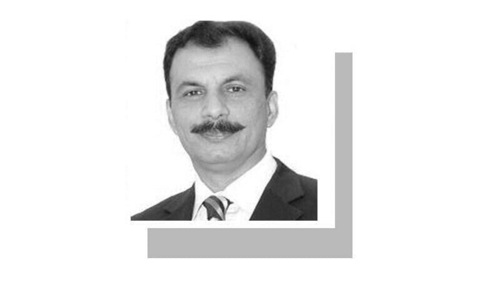RAWALPINDI, Nov 5: Agricultural productivity in Pakistan is likely to decline considerably due to warmer temperatures and shifting of the rainfall cycle in the coming years, if environmental issues are not tackled properly and greenhouse gases (GHG) are not cut, the environment minister, Faisal Saleh Hayat, said here on Monday.
Speaking at a two-day international workshop on ‘Carbon and water exchange in plants under changing climate conditions,’ organised by the Arid Agriculture University in Rawalpindi, the minister said water needs of the country depended on a single river system of the Indus, fed by glaciers in the Hindukush and Himalayas regions.
He urged researchers to evolve a strategy to maximise profits from the clean development mechanism (CDM) initiated under the ‘Kyoto Protocol’. “We must learn from the Indian approach in earning carbon credits on frequent basis from the environment-friendly projects,” Mr Hayat emphasised.
The minister told the workshop that global weather and climate change were now regarded as the “greatest challenges facing the world,” and said the rise in the global temperature and the associated changes in precipitation, glacier melt and sea level rise were expected to have considerable direct and indirect impact on various socio-economic sectors.
Mr Hayat said Pakistan is deeply committed to the global efforts of combating climate changes and has taken various measures to address the issue of climate change. He said the country had signed the UNFCC in June 1994, the Kyoto Protocol in 1997 and acceded to the Kyoto Protocol in January 2005.
The minister said a committee on climate change has been constituted as a policy and review forum, besides establishing a global change impact studies centre.
Under the mid-term development framework (MTDF), Rs20 billion have been allocated for the improvement of the environment sector. A clean development mechanism (CDM) cell has been established under the climate change wing of his ministry, he explained.
Mr Hayat said the world needed innovative and creative measures to combat the perils of climate change and it should act swiftly to minimize losses incurred by global warming. He said we ought to start thinking beyond the Kyoto Protocol. Realising the importance of cuts in greenhouse gas emissions, he said, the European Union had recently agreed to reduce emissions by 20 per cent by 2020.
Earlier, the vice chancellor of Arid Agriculture University, Dr Khalid Mahood Khan, in his welcome address appreciated the department of environmental sciences for organising the workshop. He said universities must take a lead in creating awareness among masses and his varsity had arranged seven seminars this year on various issues.
The VC highlighted the varsity’s accomplishments and told participants that a separate department of environmental sciences had been established to cater to the growing demand of environmental scientists.
The current workshop aims at presenting an overall view of changing climatic conditions (Carbon Dioxide concentration, increased temperature and water stress) of the world and to define the relationship between different intensities and types of plants. The participants will discuss and explore the possible options to intervene current scale of global climate change in order to avert the rising global temperature.
The dean, faculty of forestry range management and wildlife, Prof Sarwat Naz Mirza and Dr Mauro Centritto, an Italian scientist, also spoke on the occasion.
The workshop was organized by the department of environmental sciences of Arid Agriculture University in collaboration with the Higher Education Commission (HEC) and the Institute of Agro- Environment and Forest Biology, National Research Council of Italy.


















































Dear visitor, the comments section is undergoing an overhaul and will return soon.